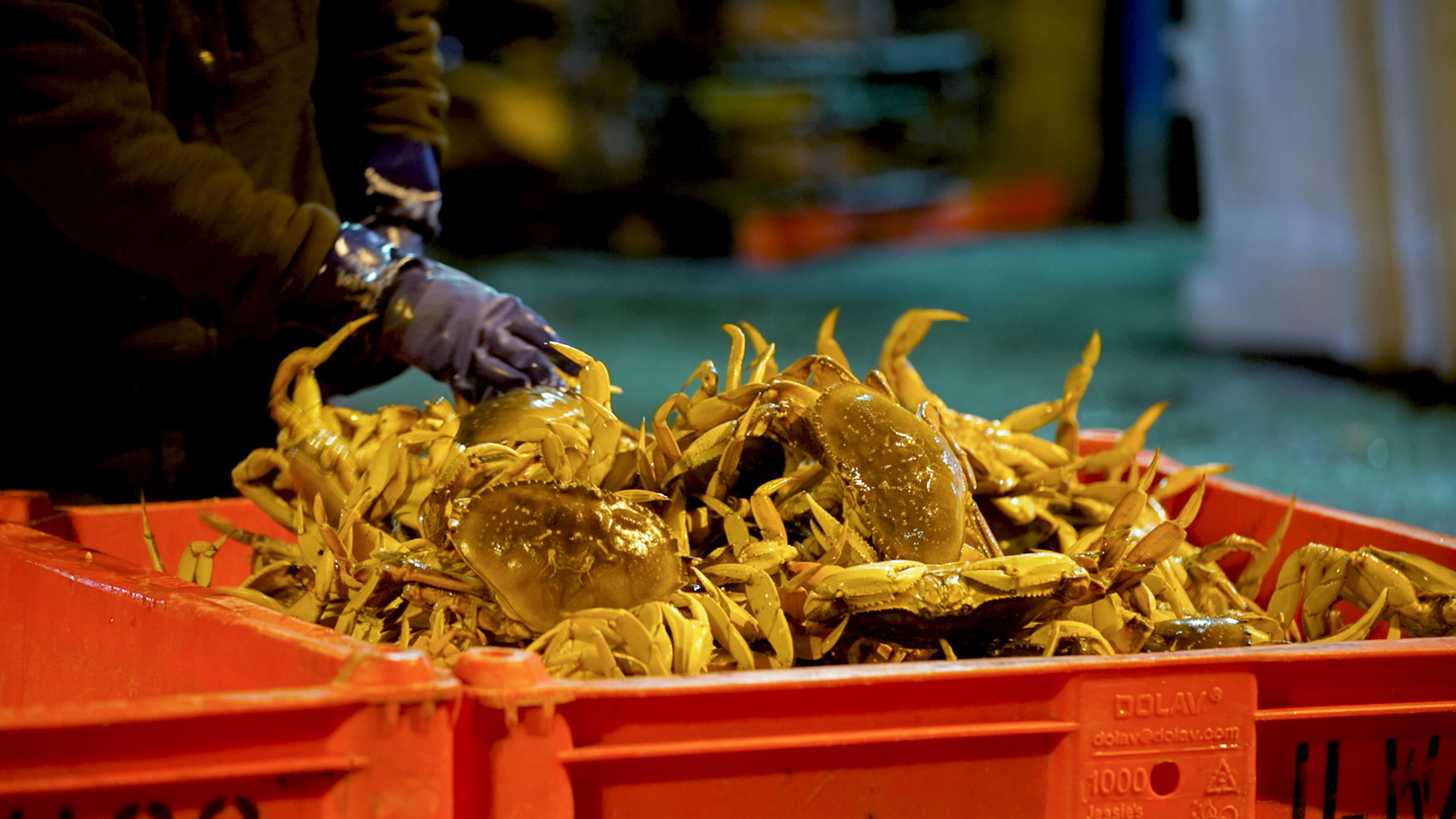Bay Area residents planning to serve Dungeness crab this Thanksgiving will have to catch it themselves as the traditional Nov. 15 kickoff for the commercial season has been delayed over concerns for migrating whales.
Whether the season can even start on Dec. 16 will be announced by the California Department of Fish and Wildlife by Dec. 7.
Bay Area crabbers aren’t alone in their wait.
In the waters north of Point Arena in Mendocino County, the season is being delayed to Dec. 16 to make time for additional testing because of poor crab meat quality (opens in new tab).
But if the last two years are an indication, the season may not begin until after Christmas, meaning consumers won’t be able to buy crabs until early January.
This marks the fourth year in a row the traditional start of the season has been postponed. The delays stem from a 2017 lawsuit filed by the Center for Biological Diversity after a record 71 reported whale entanglements along the West Coast during the 2016 season, about a third of which were caused by Dungeness crabbing equipment.

The annual migration of humpback whales that takes them north from Mexico into areas along the California coast where they feed on anchovies, sardines and krill before returning south.
“Delaying the crab season just a little bit longer is the best thing for endangered humpback whales, and I’m glad California state officials are watching out for these animals,” said Catherine Kilduff, an attorney at the Center for Biological Diversity. “Waiting a few more weeks will help ensure crab feasts don’t come with a side of entangled whale.”
The advocacy organization has pushed federal regulators to require ropeless fishing gear with an acoustic release trigger to pull traps from the water, but crabbers say the technology is ineffective and too expensive to use commercially.
One bit of positive news for San Francisco commercial crabbers is that a one-year pilot program allowing people to buy live crab off the boat in Fisherman’s Wharf has been made permanent, potentially creating another market.
John Barnett, a longtime crabber and the president of the San Francisco Crab Boat Owners Association, said no “real normal” has been established because whale migration patterns differ every year.
Whale migration patterns have shifted (opens in new tab) due to climate change and other environmental factors like ocean acidification.
“There’s a possibility that there will be one year where the whales aren’t around and we can start as normal,” Barnett said. “But what we’ve observed is that whales are here longer and that they are increasing in number, so it doesn’t seem to bode well for future delays.”
